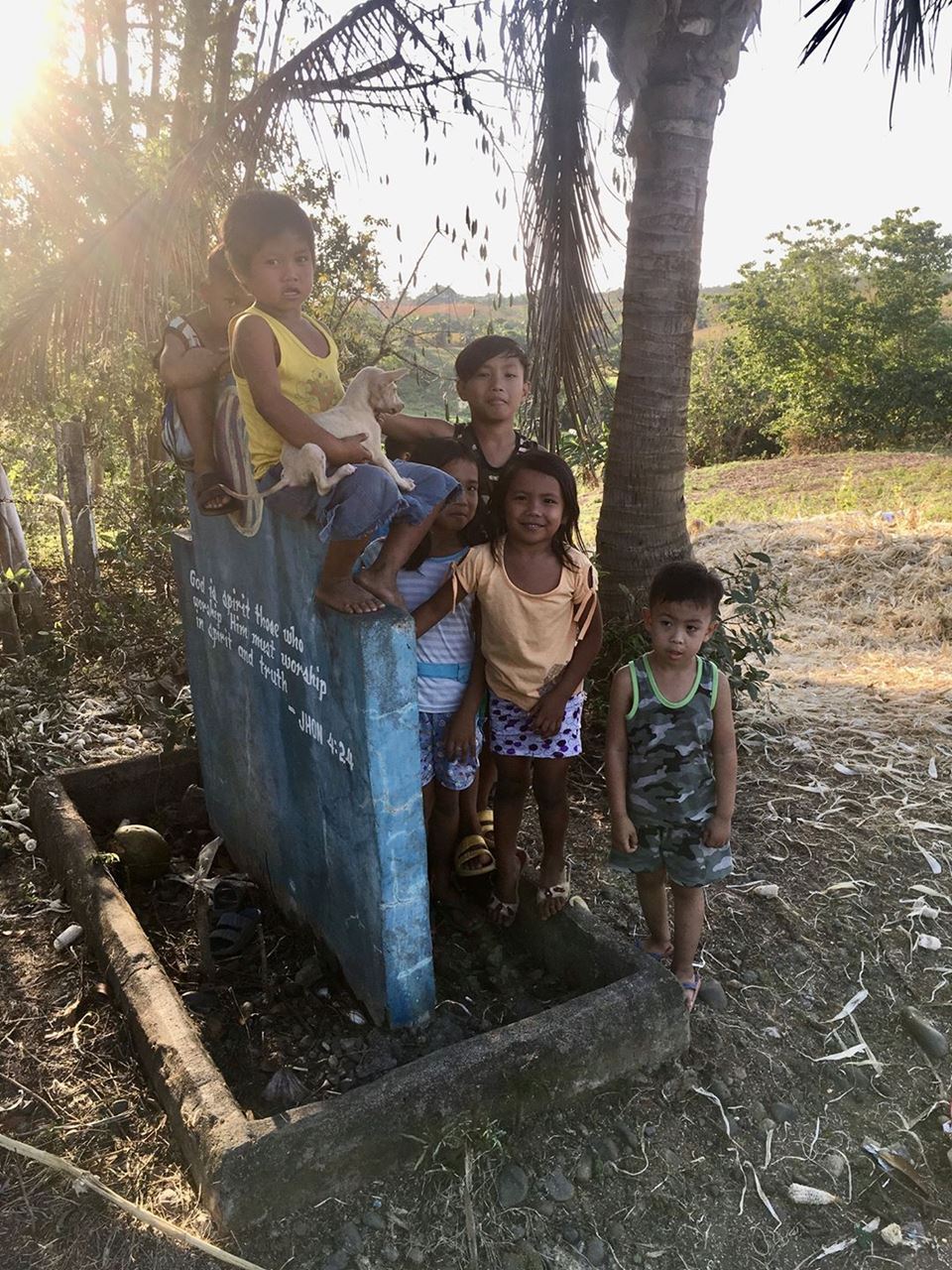By Juliann Cerrito
I had a simple objective: to revisit the village where I was a Peace Corps volunteer and, perhaps, to see if the library I created still existed and to find a former co-teacher or two. Was it that difficult? Apparently, yes, it was.
Thirty-seven years ago, I was a senior in college and pondering my future after graduation. A small poster in Emerson Hall at Western New England College caught my attention. It was for the Peace Corps, and I decided to inquire. I ended up applying and, boy, what a process! It took 7 months to receive an acceptance letter. I departed in September 1984 for San Diego, then Manila. I then spent 2½ years living and working in the Philippines; I met my husband there.
After a 3-month training, I ended up in a simple town where rice and corn were its main crops. First I reported to the rural health unit in town, and then I made my way from there. Health educators in the Peace Corps have no job descriptions, and the job is as “loosey-goosey” as it comes. I met the doctor that led the clinic, and she was lovely. I also met her midwives and health technicians. Crying babies, frail elderly folks, and the like lined the room on sturdy wooden benches. I noticed that people would show up at 8:00 am, hoping the doctor would arrive at 9:00 am, only to finally be seen by 1:00 pm. Many times, they waited until late in the afternoon to be seen. There was a carinderia (a small outdoor restaurant) outside the clinic where patients and staff could get cold drinks and lunch.
I began visiting nearby barrios with the midwives, hoping one would catch my interest and had a need I could fill. I knew I would not stay in town and live the rather luxurious lifestyle of color TV and maid service that I had in the home I was then occupying. I knew the Peace Corps meant sacrifice and aiding others. I finally chose a village, called Aromin, which was led by a woman and was located in a corn-growing region. The village was reachable by public transport—though “transport” meant 25 minutes in a jeep, then a boat ride across the river, then 1 hour on foot…in the hot sun! I did use a parasol. The village was very poor and didn’t have electricity or running water at that time. My home, which was built for me, was constructed of bamboo and had a grass roof. Beautiful as it was, it was fragile and blew away in a typhoon about 20 years ago.
Very slowly, I assessed the needs of the community and, as a health volunteer, I determined that dental education in the elementary school and basic health classes at the high school would be my objectives. In addition, I taught mothers’ classes on Saturday, which included dental care, nutrition, family planning, and potable water projects. The high school was one village over and, after speaking to the principal, we agreed I would teach the juniors and seniors three times per week, half in English and half in Tagalog (the medium of instruction in the Philippines). I had my own lingua franca, if you will. The school had a tin roof and no doors. Oftentimes, I would sweat profusely trying to teach and, yes, wonder why I was there.

Children in Aromin
My first observation was that there was no library anywhere. I’m not sure why I was surprised. The entire town did not have one; neither did the local university. The closest libraries were at the prestigious University of the Philippines and the Ateneo de la Philippines, two upper-crust schools. I had grown up privileged, but didn’t know it: my hometown in Rhode Island had a lovely library, as did the surrounding towns. I used to bike to the East Greenwich Public Library to be greeted by Mrs. Rice and Ms. McPartland. Laura Ingalls Wilder’s Little House books were my favorites. After being in the Philippines for 4 months, I learned that comic books were one of the only reading sources. The Manila Times was available and read in town, but it never made it out to the village. The paper was considered a luxury.
My peers were equally distressed to find out there was no library. After sharing resources with each other, we learned that the US Navy had a book sponsorship program. Books could be mailed to San Diego, and then the Navy would transport them overseas. I proceeded to ask friends and family to put together cartons of books they were not using and mail them out to California. They were happy to oblige. The Navy also contributed books.
Approximately 6 months later, a small truck arrived at the high school with many crates of books. It was extremely exciting. I was given a room in which to set up a library. It took a few days! My biggest concern was the security of the books, but I had to let that go. There was no way a building with few doors and no locks could keep a library safe. The rule was that students could read the books during the school period, before and after school, and during lunch. I had chosen elementary-level books for the collection. Although the local children and teens had only a basic knowledge of English, they still enjoyed the pictures and the challenge.
My contract expired in December 1986, and I headed home in January of 1987. I decided to return in 2020. My two sons and I had planned this trip for 9 months, and we planned to leave on March 3rd. We discussed the pandemic carefully ahead of time, but we decided to go through with the trip--my sons’ grandmother, Carmen, is 95 years old, and we did not know if we would ever see her again.
We were puzzled to find the JFK airport virtually empty. Our flight to Seoul was 75% empty, which was alarming as well. We arrived as the Philippines was experiencing the very early stages of the pandemic. Every store we visited had a temperature taker at the front door, and people were wearing masks. Patience was the only way to endure the visit.
One evening at Grandma Carmen’s home, there was a knock on the door. We opened it to find three local health officials. Rumors had circulated that foreigners were in town, and the officials wanted to ask us questions about our health and take our temperatures. It was odd, to say the least. We had a lengthy discussion and because I’d had a cold the week before, we were labeled “suspicious.” We were instructed to visit a hospital the next day for blood tests to see whether our white blood count was elevated; COVID-19 tests were not available.
This didn’t go over very well with me or my family. I wanted to proceed to my village the following day, not visit a local hospital. In fact, I was told I couldn’t visit my village. I was beside myself. The people in Aromin had planned an enormous party for me, because they hadn’t seen me in 33 years. The following day, we had to visit two hospitals to get the travel clearance we needed in order to go home the following week. The hospitals were basic, with no gloves and no COVID-19 tests. After getting clearance from hospital number two, the doctor asked to take photos. I thought that was odd. While the doctor took photos, I noticed a sign on the wall announcing that cleft palate surgery was now free and that next week was “Leprosy Prevention Week.” I was perplexed that leprosy was still a problem there. I was glad that cleft palate surgery was now free. What a difference between here and home.

Juliann and her Family Visiting the Hospital
After visiting the hospitals, my family was still considered “under suspicion,” but I was given permission to travel to Aromin. I went the next day, but was only able to stay for 4 hours. We had to leave the next morning for Manila, because the capital was closing in so many days and we would have missed our flight back to the United States.
I learned that the library I’d established no longer exists. All the books were taken into peoples’ homes; that is fine by me. There has never been another initiative in 33 years to develop another library. Think of this, and love your library.
